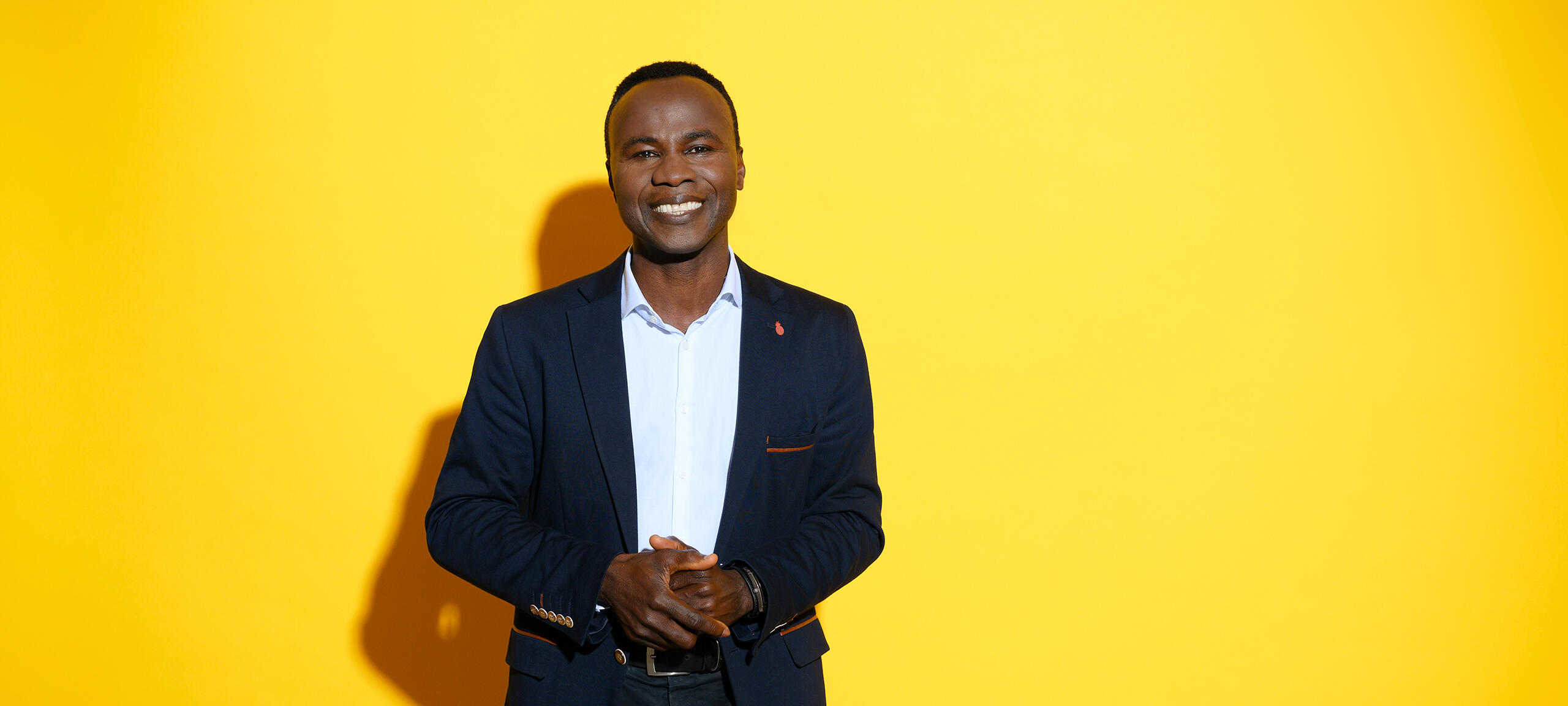
Role model Charles Agyemang
Who?
Charles Agyemang is Ghanaian and British. After high school, he moved from Ghana to Britain. At the University of Edinburgh he studied Public Health. There he met the Dutch Ank de Jonge. Agyemang moved to the Netherlands for her, obtained his PhD at Erasmus University and now they both work at Amsterdam UMC. De Jonge as Professor of Obstetric Science - the first professor in this subject in the Netherlands - and Agyemang as Professor of Global Migration, Ethnicity and Health.
Specialty?
"In my research, I mainly focus on epidemiology and prevention of cardiovascular disease and risk factors among ethnic minority and migrant populations in high-income countries and in populations in low- and middle-income countries. In recent years I worked for example as project leader on the RODAM project (Research on Obesity and Diabetes among African Migrants) - a European Commission funded project on gene and environmental interaction on obesity and diabetes among African migrants. It compares the health of Ghanaians in the Netherlands with that of Ghanaians in Germany, England and the home country of Ghana to find out the causes of obesity and diabetes among African migrants. How much does the new living environment affect the health of migrants? I was awarded the European Research Council Consolidation grant in 2018 to further develop the RODAM study. I also conduct research on the health of specific ethnic groups in the Netherlands, such as Turks, Moroccans and Surinamese, and compare their health with that of native Dutch in order to detect ethnic differences." Agyemang is also active internationally. He is vice president of the European Public Health Association, Migrant Health section and scientific president of the Global Society of Migration, Ethnicity, Race & Health. In this way, he is trying to bring more attention to health of ethnic minorities and migrant populations.
Why are you committed to health care?
"My motto: Your health is your wealth. Health comes before everything else. Everyone deserves good care, regardless of gender, race or ethnicity, religion or belief, disability, age or sexual orientation. The health care system must take all these differences into account. What drives me is that I can now contribute to reducing these health differences."
What does Amsterdam UMC mean to you?
"Amsterdam UMC is a true melting pot. Just look at the diverse workforce and the food in the canteen that comes from all over the world. Diversity is clearly visible here and that fits perfectly with the work I do. I can really make a difference here. Amsterdam UMC also gives me the opportunity to set up an intensive collaboration with the university in Ghana. We organize a Summerschool in Accra every year and regularly have PhD students from Ghana and other African countries to build capacity for health research."
Amsterdam UMC is going for diverse and inclusive. Where do opportunities lie?
"Just because we have a diverse workforce doesn't mean we're doing well on diversity and inclusion. Are the opportunities to excel really the same for everyone? Don't just monitor whether your workforce is diverse enough and you can tick that box, check whether that diversity is there at every level. And make adjustments where necessary. Make sure that diversity is not only talked about internally, but that it is seen and felt at every level. A big advantage of having such a diverse organization: If the care team is a reflection of the community in which the hospital is located, people feel more at ease and that helps in the trust in care."
A good example of inclusive collaboration within Amsterdam UMC?
"Within the 'Your health is your wealth' project, researchers, physicians and churches are working together to educate people of African descent who currently live in Amsterdam Zuidoost, around location AMC, about a healthy lifestyle. During the three-day event, which has been held annually since 2016, people from the neighborhood can, among other things, have their blood pressure and blood sugar measured for free. The project not only reduces the distance between the community and our hospital, but also helps to detect diseases earlier."
Outside of working hours?
"I love the cycling culture in the Netherlands. I get the best ideas on the bike. So if it's not raining too hard, I cycle for an hour every day."
Do you have any questions for Charles or would you like to know more about diversity & inclusion within Amsterdam UMC. If so, please email diversiteit@amsterdamumc.nl
Text: Sophie Verschoor
